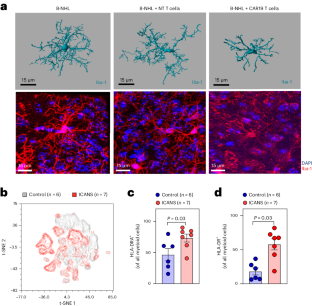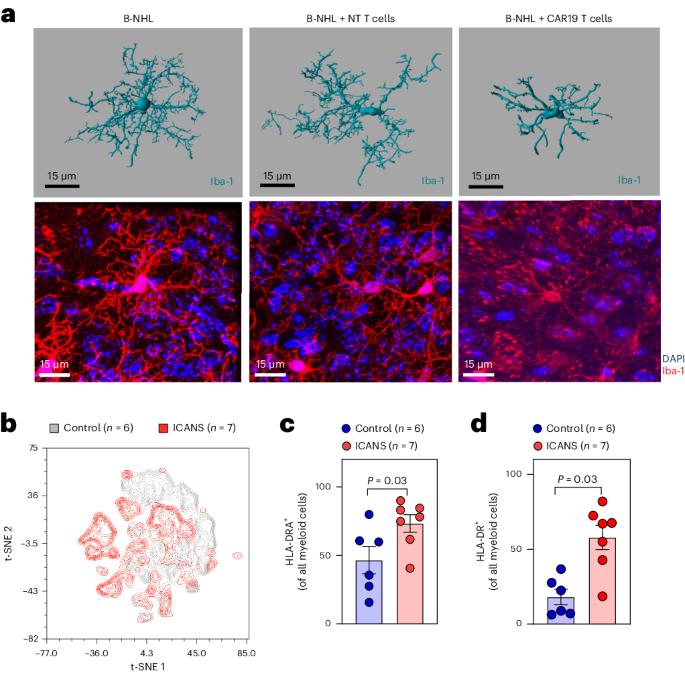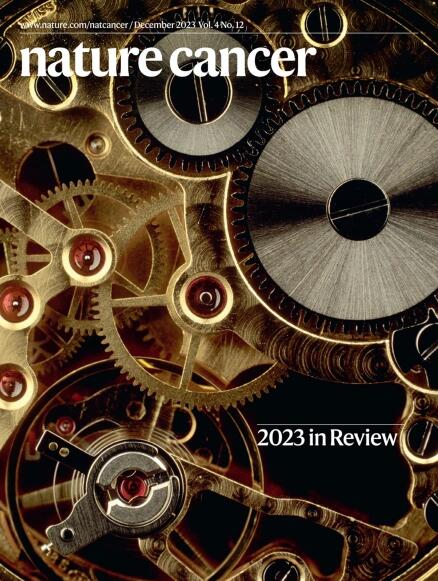针对小胶质细胞中的 TAK1 治疗 CAR T 细胞神经毒性。
IF 23.5
1区 医学
Q1 ONCOLOGY
引用次数: 0
摘要
我们利用单细胞多组学技术对淋巴瘤小鼠和接受 CAR19 T 细胞转移后出现神经毒性的患者的小胶质细胞进行了分析。我们发现,CAR19 T 细胞输注后的小胶质细胞活化主要由激酶 TAK1 介导,这表明在接受基于 CAR19 T 细胞的癌症免疫疗法的患者中靶向 TAK1 可以治疗神经毒性。本文章由计算机程序翻译,如有差异,请以英文原文为准。


Targeting TAK1 in microglia to treat CAR T cell neurotoxicity
We profiled microglia using single-cell multi-omics techniques in lymphoma-bearing mice and patients who developed neurotoxicity after CAR19 T cell transfer. We discovered that microglial activation after CAR19 T cell infusion was mediated mainly by the kinase TAK1, which suggests that targeting TAK1 in patients receiving CAR19 T cell-based cancer immunotherapy could treat neurotoxicity.
求助全文
通过发布文献求助,成功后即可免费获取论文全文。
去求助
来源期刊

Nature cancer
Medicine-Oncology
CiteScore
31.10
自引率
1.80%
发文量
129
期刊介绍:
Cancer is a devastating disease responsible for millions of deaths worldwide. However, many of these deaths could be prevented with improved prevention and treatment strategies. To achieve this, it is crucial to focus on accurate diagnosis, effective treatment methods, and understanding the socioeconomic factors that influence cancer rates.
Nature Cancer aims to serve as a unique platform for sharing the latest advancements in cancer research across various scientific fields, encompassing life sciences, physical sciences, applied sciences, and social sciences. The journal is particularly interested in fundamental research that enhances our understanding of tumor development and progression, as well as research that translates this knowledge into clinical applications through innovative diagnostic and therapeutic approaches. Additionally, Nature Cancer welcomes clinical studies that inform cancer diagnosis, treatment, and prevention, along with contributions exploring the societal impact of cancer on a global scale.
In addition to publishing original research, Nature Cancer will feature Comments, Reviews, News & Views, Features, and Correspondence that hold significant value for the diverse field of cancer research.
 求助内容:
求助内容: 应助结果提醒方式:
应助结果提醒方式:


